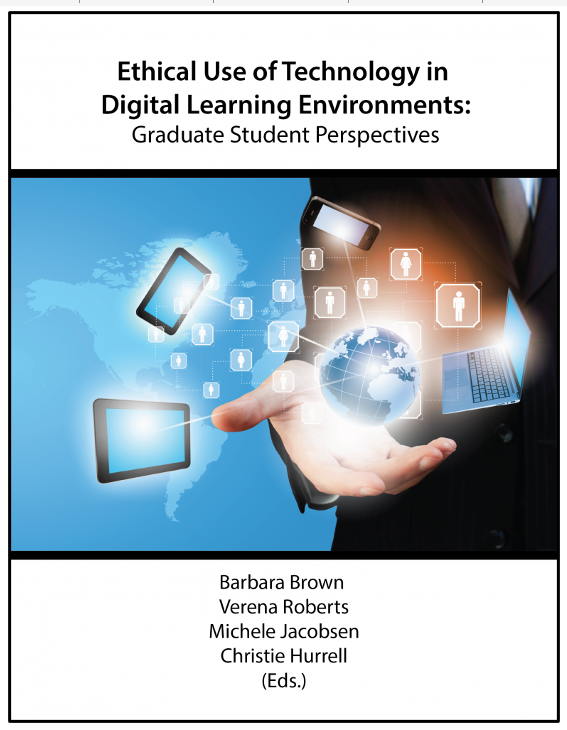Overview of our global dialogue presented on March 30, 2021: In this session we discuss the challenges and opportunities for advancing faculty development and graduate supervision in online learning. We dispel myths about online learning environments and discuss how digital innovations provide possibilities for faculty and students to learn and connect globally. We also share our experiences with engaging pre-service, in-service teachers, and faculty in professional learning through an online pedagogy series and graduate supervision MOOC.
Link to Presentation – Mar30-2021 Slides.pptx
University of Calgary Links:
Werklund School of Education Graduate Programs, University of Calgary – https://werklund.ucalgary.ca/graduate-programs
Taylor Institute for Teaching and Learning, University of Calgary – https://taylorinstitute.ucalgary.ca/ (open access learning modules)
Other Related Sources:
Brown, B. (2019). One-Take Productions for Student Feedback. Education Canada Magazine, 59(2). https://www.edcan.ca/articles/student-feedback/
Brown, B. (2020). Using Zoom to create weekly video message for students.
http://www.drbarbbrown.com/2020/06/18/using-zoom-to-create-a-weekly-video-message-for-students/
Brown, B., Alonso-Yanez, G., Friesen, S., & Jacobsen, M. (2020). High school redesign: Carnegie unit as a catalyst for change. Canadian Journal of Educational Administration and Policy (CJEAP), 193, 97-114. https://journalhosting.ucalgary.ca/index.php/cjeap/article/view/68066
Brown, B., Burns, A., Kendrick, A., Kapoyannis, T., & Delanoy, N. (2020). Adapting to changing K-12 contexts during COVID-19: Teacher education perspectives. In M. K. Barbour & LaBonte, R., Stories from the field: Voices of K-12 Stakeholders during Pandemic, Canadian eLearning Network, pp. 63-68. https://sites.google.com/view/canelearn-ert/
Brown, B. & Eaton, S. E. (2020). Using a community of inquiry lens to examine synchronous online discussions in graduate courses. In L. Wilton, & Brett C. (Eds.) Handbook of Research on Online Discussion-Based Teaching Methods (pp. 229-262), IGI Global. https://doi.org/10.4018/978-1-7998-3292-8
Brown, B., Jacobsen, M., & Lambert, D. (2014, May 9-10). Learning technologies in higher education [Paper presentation]. In P. Preciado Babb (Ed.). Proceedings of the IDEAS: Rising to the Challenge Conference, (pp. 25-43). Werklund School of Education, University of Calgary, AB, Canada. http://hdl.handle.net/1880/50588
Brown, B., Roberts, V., Jacobsen, M., & Hurrell, C. (Eds.) (2020). Ethical use of technology in digital learning environments: Graduate student perspectives. University of Calgary [eBook] https://doi.org/10.11575/ant1-kb38
Brown, B. & Vaughan, N. (2018). Designing group work in blended learning environments. In R. J. Harnish, K. R. Bridges, D. N. Sattler, M. L. Signorella, & M. Munson (Eds.). The Use of Technology in Teaching and Learning (pp. 82-97). Society for the Teaching of Psychology web site: https://teachpsych.org/ebooks/useoftech
Donovan, T., Bates, T., Seaman, J., Mayer, D., Martel, E., Paul, R., . . . Poulin, R. (2019). Tracking online and distance education in Canadian universities and colleges: 2018. Canadian National Survey of Online and Distance Education, Public Report. Canadian Digital Learning Research Association. https://onlinelearningsurveycanada.ca/
Garrison, D. R., Anderson, T., & Archer, W. (2000). Critical inquiry in a text-based environment: Computer conferencing in higher education model. The Internet and Higher Education, 2(2-3), 87-105.
Community of Inquiry (CoI) Framework – https://coi.athabascau.ca/coi-model/
Graham, C. R., Woodfield, W., & Harrison, J. B. (2013). A framework for institutional adoption and implementation of blended learning in higher education. Internet and Higher Education, 18, 4-14. https://doi.org/10.1016/j.iheduc.2012.09.003
Irvine, V. (2020, Oct 26). The Landscape of Merging Modalities. Educause Review, 4. https://er.educause.edu/articles/2020/10/the-landscape-of-merging-modalities
Jacobsen, M., Friesen, S., & Lock, J. (2013). Strategies for Engagement: Knowledge building and intellectual engagement in participatory learning environments. Education Canada. https://www.edcan.ca/articles/strategies-for-engagement/
Jacobsen, M., Brown, B., & Lambert, D. (2013). Technology-enhanced learning environments in higher education: A review of the literature. Werklund School of Education, University of Calgary, (80 pages). http://hdl.handle.net/1880/52244
Martin, J. (2019). Building Relationships and Increasing Engagement in the Virtual Classroom. Journal of Educators Online, 16(1), 9-13. https://www.thejeo.com/archive/2019_16_1/martin
Mazur, A., Brown, B., & Jacobsen, M. (2015). Learning designs using flipped classroom instruction. Canadian Journal of Learning Technology, 41(2), 1-26. https://www.cjlt.ca/index.php/cjlt/article/view/26977
Note: This post is also available on Dr. Michele Jacobsen’s blog
Feel free to connect with us: [email protected] and [email protected] OR Twitter handles: @barbbrown @dmichelej



